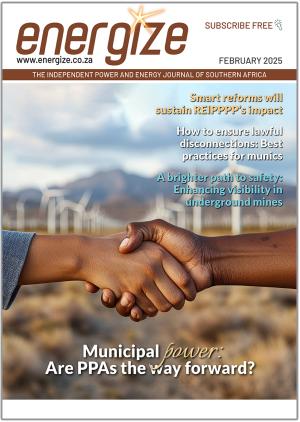South Africa has committed to the newly launched Global Energy Transition Forum announced at the World Economic Forum (WEF) in Davos yesterday.
The forum, led by European Commission President Ursula von der Leyen, aims to accelerate the shift towards clean energy by uniting global partners, including South Africa.
Von der Leyen listed the forum’s goals during a panel discussion:
- Sustaining momentum from historic energy agreements by integrating them into nationally determined contributions and measurable progress indicators.
- Translating these commitments into concrete projects such as expanding energy access in underserved communities, fostering new clean industries and scaling up global renewable energy deployment.
- Unlocking greater investment for energy transition initiatives.
“Only what gets measured gets done, which is why we rely on our trusted partnership with the International Energy Agency (IEA) to track the progress of these goals,” she said.
The new initiative aligns with the goals set in 2023 – at COP28 in the United Arab Emirates – which include doubling global energy efficiency and tripling renewable energy capacity by 2030. As part of this effort, the European Commission has partnered with South Africa to mobilise investment through the “Scaling up Renewables in Africa” campaign.
Panellists flagged Africa’s challenges in meeting the forum’s goals. “It breaks my heart that 60% of the world’s good solar energy is in Africa yet the amount of solar produced on the continent is less than the solar power produced in the Netherlands,” said Fatih Birol, Executive Director of the IEA.
Birol attributed the disparity to insufficient investment, noting that, while China receives 85% of global renewable energy investments, regions where 60% of the world’s population resides have access to only 15% of such funding.
South Africa presents progress
President Cyril Ramaphosa, Minister of Electricity Kgosientsho Ramokgopa, Eskom’s Group Chief Executive Dan Marokane and South African Nuclear Energy Corporation Group Chief Executive Officer Loyiso Tyabashe attended the WEF to discuss South Africa’s energy transition plans.
In his speech, Ramaphosa emphasised that critical issues, such as energy security and infrastructure gaps, would be tackled with innovative solutions and collaboration, which will be a key topic during South Africa's G20 presidency.
Ramokgopa highlighted South Africa’s progress in eliminating load shedding since March and the effectiveness of recent energy policy reforms, including the Electricity Regulation Amendment Bill. “The focus remains on achieving energy sovereignty, fostering sustainability and promoting inclusive economic growth.”
Government plans to increase generation capacity from 48 GW to 78 GW by 2035 with investment opportunities spanning renewable energy, natural gas and nuclear power.
“President Ramaphosa is involved in excellent initiatives and I believe these issues will be key topics for the upcoming G20,” Birol said.















